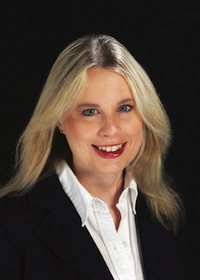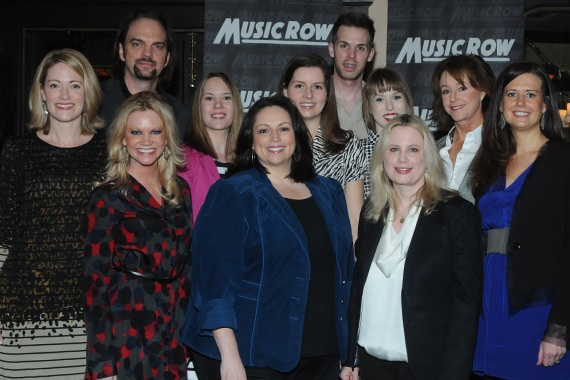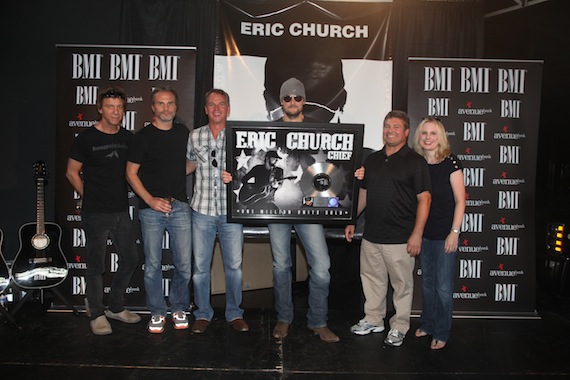

Cindy Mabe
Cindy Mabe was recently promoted to the role of president at Universal Music Group Nashville, including Capitol Records Nashville, EMI Records Nashville, MCA Nashville, and Mercury Nashville. Previously Sr. VP of Marketing, the North Carolina native and Belmont University graduate has overseen marketing, digital marketing, media marketing, creative services, production and international strategies for Capitol Records since 2007.
In 2013, Mabe was honored as one of MusicRow’s Rising Women on the Row.
Prior to her work at UMG Nashville, she oversaw marketing and day-to-day strategy at Arista Nashville, where she was instrumental in the careers of Alan Jackson, Carrie Underwood and Brad Paisley.
How will your responsibilities change in this new role?
I will continue to run marketing for Universal, but now all other departments will also report to Mike Dungan and me. My hope is that this position will allow us to not only be more in sync with the day-to-day planning and investments in our artists but ultimately, we will start building the infrastructure for what the future music business will look like over the next few years. People are consuming music differently and in the next five years, it will look completely different than it does now. Car companies, smartphones and technology are changing the way we listen, discover and invest in music. This position was created to help strategically build the groundwork for the consumer shift.

Little Big Town previews Tornado at Nashville’s Schermerhorn Symphony Center. Pictured (L-R): Capitol Records Nashville SVP Promotion Steve Hodges; UMGN COO Tom Becci; LBT’s Phillip Sweet, Kimberly Schlapman, Karen Fairchild, Jimi Westbrook; Cindy Mabe; President and CEO, EMI Christian Music Group Bill Hearn.
What are some of the biggest challenges today in overseeing artist marketing?
Country radio has been the primary marketing machine for so long and it continues to be our most cost efficient, key driver. But for many artists, particularly traditional [sounding] artists, females and new artists, it’s harder to fit within the boundaries of what Country radio will play and it can take an enormous amount of time to get one song to connect with a mass audience. It can be painful to run a business solely on that.
We look at the partners that best fit each artist and build the strategy differently every time. There are more music discovery platforms than ever before with streaming services and new subscription models. Brand partners want to be in the entertainment business and there are more TV shows completely built on music discovery. Retailers are investing in their own content platforms to help consumers discover new releases. Satellite radio and Internet radio present opportunities for breaking new artists.
With that said, marketing is still about answering the same question: “Why should I care [about this artist]?” Ultimately our job is to show why these artists are unique, and find the people who are drawn to them and their music. We make sure we have presented them in a way that is key to exposing their music and building the legions of fans who will recite their brand message and buy their music.

MusicRow staff with 2013’s Rising Women on the Row. Pictured (L-R, Front Row): Brandi Simms, Cyndi Forman, Cindy Mabe. (L-R, second row): Cindy Hunt, MusicRow‘s Jessica Nicholson and Sarah Skates, Caitlin Rantala, Mary Ann McCready, Beth Laird. (L-R, Back Row): MusicRow‘s Sherod Robertson and Eric Parker.
UMG is home to Luke Bryan and Eric Church–two successful artists with very different brands. What do you see as the next step in the development of each of their brands?
It’s been really fun and challenging to be a part of these guys’ careers over the past seven years. They are both unique cases in artist development. When you know you have something that special, you can never quit trying. Judging from the first or second albums from either of them, wouldn’t have given you great confidence that they’d be where they are now.
Luke is touring stadiums. His brand really is an extension of his life. When you see him on stage, he doesn’t take himself too seriously and he echoes his brand message of ‘Leave your problems at the door.’ He is a guy who lives to love his life and enjoy every day. In the world we live in, that message cuts through and resonates with the fans.
Eric’s songwriting and live showmanship separate him from everyone. He’s Nashville’s quality control guy. No matter how far he pushes the boundaries of the musical sound, he is so lyrically adept that you will follow him. Eric is never going to make a record that bores anyone and he will always challenge the walls around him because he will never fit in the box. That’s why his fans are diehard fans and that’s why Nashville needs him so desperately. He keeps us all interested.

Celebrating the platinum certification of Eric Church’s project Chief. Pictured (L-R): Producer, Jay Joyce; Q Prime’s John Peets; Capitol Nashville’s Steve Hodges; Eric Church; Capitol Nashville’s Tom Becci; Cindy Mabe. Photo: Alan Poizner
New artist Sam Hunt was recently signed to MCA Nashville. How do you go about differentiating him from the numerous other male solo artists that are dominating the Country radio charts right now?
Sam separates himself in the way he writes, his phrasing, the R&B soulfulness he brings to his music. He’s a dynamic live performer, he is a very visual creator of video, music and performance.
When we were in the process of signing Sam, every discussion was about how we could get music to the fans in a different timeline than the typical 35-week single to album launch mentality. He had already put out an acoustic mix tape on his website for fans to find him. We put a little more strategy into the game plan but it all came from Sam’s original thought that his music is more dynamic than just one single will show. When fans are discovering an artist, you want as much music content as they can have to keep them invested.
We have followed that strategy with our set up. We have had partners like Spotify and Sirius/XM who have invested their own money and time in Sam before we ever had a single at Country radio. We have pushed video content out that is super-serving the young fan base he is building and as he goes in to play each market, they already know multiple songs despite the fact we just went for adds at Country radio. Clear Channel and CBS have both stepped out of the box on our first single “Leave the Night On.” Many more programs and partners are stacked up for the next couple of months and he will be the guy we’re talking about for a long time.
You are the first woman to hold the title of president of a major label in Nashville. How does that make you feel?
I never wanted to get here just because I am a woman, but I am certainly proud to be one in this role. I want to make a difference.

About the Author
Jessica Nicholson serves as the Managing Editor for MusicRow magazine. Her previous music journalism experience includes work with Country Weekly magazine and Contemporary Christian Music (CCM) magazine. She holds a BBA degree in Music Business and Marketing from Belmont University. She welcomes your feedback at jnicholson@musicrow.com.View Author Profile


